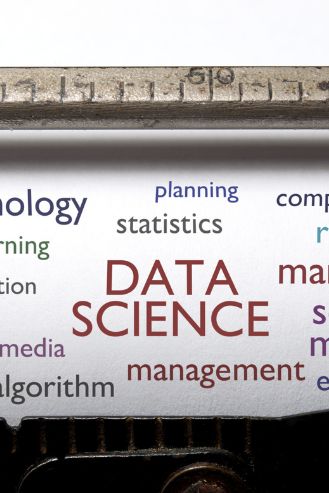
The Impact of Data Science on Marketing: Transforming Business Strategies
Data science is revolutionizing marketing strategies across industries, enabling businesses to make more informed decisions and create personalized customer experiences. The integration of data science in marketing has become essential for companies seeking competitive advantages in today’s digital landscape. By leveraging advanced analytics, machine learning, and artificial intelligence, marketers can now understand consumer behavior with unprecedented precision and adapt their strategies accordingly.

Understanding the Data Science-Marketing Relationship
The relationship between data science and marketing represents a fundamental shift in how businesses approach customer acquisition and retention. Traditional marketing relied heavily on intuition and general demographic information, but data science has reshaped consumer insights by providing granular understanding of individual preferences, behaviors, and purchase patterns. This transformation enables marketers to move from broad-based campaigns to highly targeted initiatives that speak directly to consumer needs.
Data scientists work alongside marketing teams to collect, process, and analyze vast amounts of customer data from multiple touchpoints. This collaboration creates a powerful synergy that drives more effective marketing campaigns, optimizes spending, and improves return on investment (ROI). The result is a more scientific approach to marketing that relies on evidence rather than assumptions.
Key Applications of Data Science in Marketing
1. Customer Segmentation and Targeting
Data science enables sophisticated customer segmentation beyond basic demographics. Using clustering algorithms and machine learning techniques, marketers can identify distinct customer groups based on behavioral patterns, purchase history, and engagement levels. These insights allow for highly targeted messaging that resonates with specific audience segments.
2. Predictive Analytics for Customer Behavior
Predictive models can forecast customer actions, such as likelihood to purchase, churn probability, or lifetime value. Predictive marketing for retail has transformed customer engagement by anticipating needs before customers themselves recognize them. This foresight allows businesses to proactively address customer requirements and create timely, relevant offers.
3. Personalization at Scale
Data science makes it possible to deliver personalized experiences to millions of customers simultaneously. Recommendation engines, dynamic content, and automated marketing workflows all rely on data science algorithms to tailor interactions based on individual preferences and behaviors. This level of personalization significantly improves engagement rates and customer satisfaction.
4. Attribution Modeling
Understanding which marketing channels and touchpoints contribute most to conversions has always been challenging. Data science provides sophisticated attribution models that accurately measure the impact of each marketing interaction along the customer journey. This clarity helps marketers allocate budgets more effectively and optimize the marketing mix.
5. Real-time Marketing Optimization
With data science, marketing campaigns can be continuously monitored and adjusted in real-time. A/B testing, multivariate analysis, and automated bidding systems all leverage data science to maximize campaign performance. This agility allows marketers to respond quickly to changing market conditions and consumer preferences.
Implementing Data Science in Your Marketing Strategy: A Step-by-Step Guide
Step 1: Define Clear Objectives
Begin by identifying specific marketing challenges that data science can address. Whether it’s improving customer retention, increasing conversion rates, or enhancing campaign performance, having clear objectives will guide your data science initiatives.
Step 2: Audit Your Data Resources
Assess the quality, quantity, and accessibility of your customer data. Identify gaps in your data collection and establish processes to gather the information needed for meaningful analysis. Ensure compliance with privacy regulations like GDPR and CCPA.
Step 3: Build the Right Team
Successful implementation requires collaboration between data scientists, analysts, and marketing professionals. Consider whether to develop in-house capabilities or partner with specialized agencies depending on your resources and needs.
Step 4: Start with Pilot Projects
Begin with small-scale initiatives that can demonstrate quick wins. Focus on projects with clear ROI potential, such as improving email campaign performance or optimizing digital ad spending. Use these successes to build momentum for larger initiatives.
Step 5: Develop a Data-Driven Culture
Encourage marketing teams to base decisions on data rather than intuition alone. Provide training on data interpretation and foster an environment where testing and learning from results is valued.
Overcoming Challenges in Data Science Marketing
Data Privacy Concerns
As data collection becomes more sophisticated, consumer privacy concerns have intensified. Marketers must balance the desire for deep customer insights with ethical data practices and regulatory compliance. Transparent data policies and obtaining proper consent are essential for maintaining customer trust.
Integration of Multiple Data Sources
Customer data often exists in silos across different platforms and departments. Creating a unified view requires integrating data from CRM systems, website analytics, social media, and offline interactions. This technical challenge requires robust data architecture and integration tools.
Skill Gaps
Many marketing teams lack the technical expertise to fully leverage data science capabilities. Bridging this gap requires either upskilling existing staff, hiring specialized talent, or partnering with external experts who can translate between marketing objectives and data science methodologies.
Future Trends in Data Science Marketing
AI-Powered Content Creation
Artificial intelligence is increasingly being used to generate marketing content, from email subject lines to social media posts. These tools analyze performance data to create content that resonates with specific audience segments, improving efficiency and effectiveness.
Voice and Visual Search Optimization
As consumers adopt voice assistants and visual search tools, data science helps marketers optimize for these new search modalities. Understanding natural language processing and image recognition algorithms becomes crucial for maintaining visibility.
Emotion Analytics
Advanced sentiment analysis can now detect subtle emotional responses to marketing messages. This capability allows for more nuanced understanding of consumer reactions and enables marketers to craft emotionally resonant campaigns.
Augmented Analytics
The next generation of marketing analytics tools will use AI to automatically discover insights and make recommendations. These systems will democratize data science, making sophisticated analysis accessible to marketers without technical backgrounds.
Practical Tips for Leveraging Data Science in Marketing
- Focus on actionable insights – Prioritize analyses that lead to clear marketing actions rather than interesting but impractical findings.
- Embrace experimentation – Use A/B testing and controlled experiments to validate hypotheses before full-scale implementation.
- Invest in data visualization – Make complex data accessible through intuitive dashboards and visual representations.
- Balance automation and human judgment – Use data science to automate routine decisions while preserving human oversight for strategic choices.
- Continuously measure impact – Establish clear metrics to evaluate the ROI of your data science initiatives.
- Stay current with emerging technologies – The field evolves rapidly, so ongoing education is essential for maintaining competitive advantage.
- Consider ethical implications – Evaluate how your data practices might affect customers and society at large.
Case Studies: Data Science Success Stories
E-commerce Personalization
A major online retailer implemented a recommendation engine that analyzed browsing behavior, purchase history, and product attributes. The system delivered personalized product suggestions that increased average order value by 25% and improved customer retention rates.
Content Marketing Optimization
A B2B software company used natural language processing to analyze engagement with their blog content. The insights revealed specific topics and writing styles that resonated with their target audience, leading to a 40% increase in qualified leads from content marketing.
Advertising Efficiency
A consumer packaged goods company applied machine learning to optimize their digital advertising spend. By identifying the most effective channels, messages, and timing for different customer segments, they reduced customer acquisition costs by 30% while maintaining growth targets.
The Data-Driven Marketing Imperative
The impact of data science on marketing represents not just an evolution but a revolution in how businesses connect with customers. Organizations that successfully integrate data science into their marketing strategies gain significant competitive advantages through improved customer understanding, more efficient resource allocation, and the ability to deliver truly personalized experiences at scale. As consumer expectations continue to rise and digital touchpoints multiply, advanced marketing tools powered by data science will become not just advantageous but essential for survival in the marketplace.
The future belongs to marketers who can balance the art of creative messaging with the science of data-driven decision making. By embracing this dual approach, businesses can create marketing strategies that are both more human in their relevance and more scientific in their precision. The result is marketing that truly serves both business objectives and customer needs—the ultimate win-win scenario in a data-transformed world.


